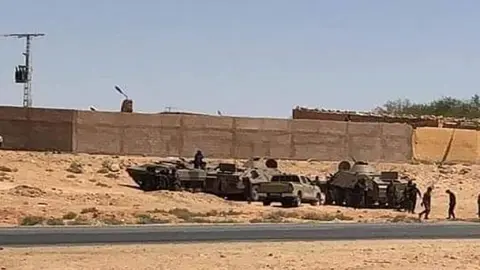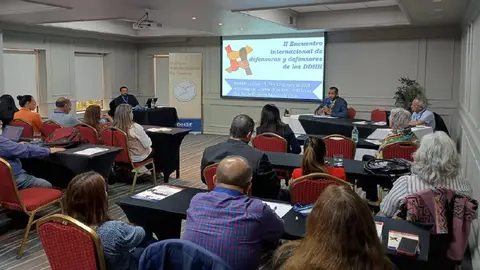The harsh repression of the Polisario Front in Saharawi refugee camps
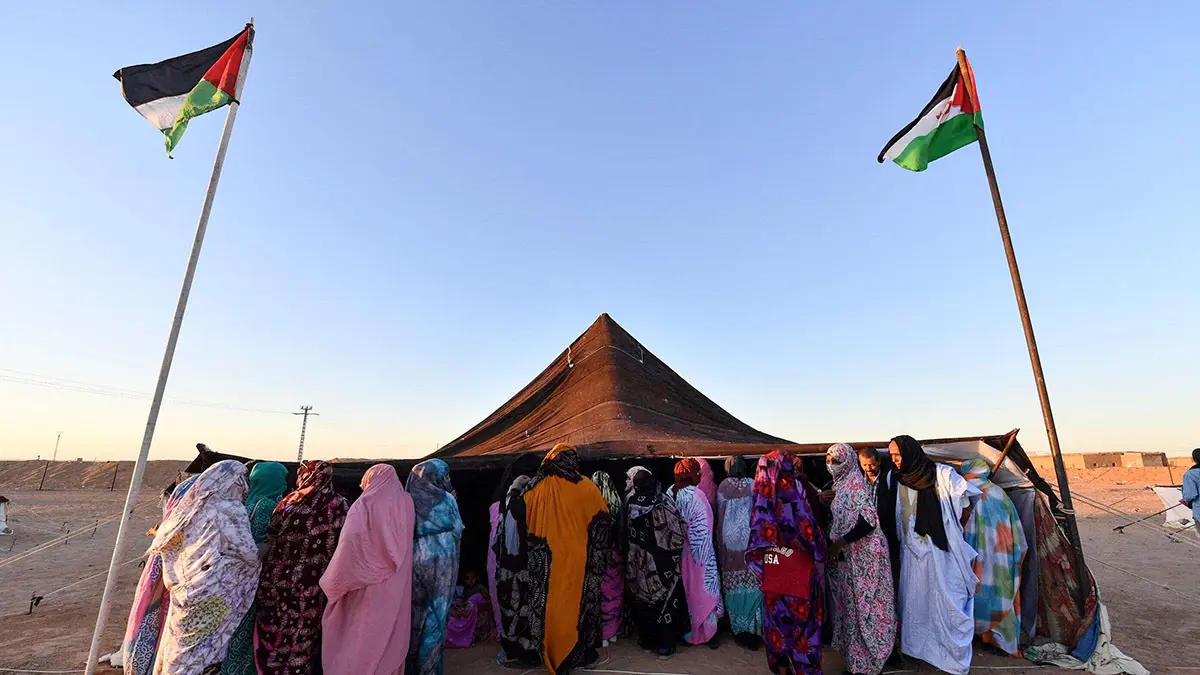
Since its inception, the Polisario Front has never pursued the principles of freedom, equality, justice and human dignity, despite its tireless efforts to promote those values on any occasion that might undermine its continued hold on the Sahrawi collective consciousness, and the imposition of symphonies we have heard since childhood, such as that of the Polisario Front, the sole legitimate representative of the Saharawis, as well as the glorious Saharawi women, who have not been and will not be subjected to any harm inside the camps, and the principles that have been calcified in the Hamada desert without being translated into reality.
A bitter harsh reality for men, women and children in an environment that rejects the minimum conditions for a dignified life, and in a context of lawlessness, oppression, restrictions, suffocation of freedoms and erosion of rights, and that punishes every voice willing to reveal their pain, dreams and aspirations with the dawning of the best vision of the past and the reality of the Sahrawi men and women in the Tindouf area.
The political, military and security context in the Sahrawi camps on Algerian soil remained far removed from any international protection, which did not allow these people safe access to their rights and freedoms. In fact, the Algerian authorities and the specialised UN agencies abandoned them.
Without a census of the Saharawis in Tindouf, nor a real determination of their humanitarian needs to meet their needs there, they became stateless, forcibly subjected to a military organisation that did nothing better than kill, kidnap, whip, torture and mistreat the free men and women of the Sahara, the more their yearning for liberation from the hermetically sealed cage of the Polisario grew.
In the Saharawi camps, there is no place safe from the oppression of the Polisario leadership and its security elements, and even from the prejudices of its parallel organisations, including the civil society associations that hover within the organisation's orbit.
Serious mass violations were committed without many people saying a word, with the sole purpose of continuing to serve the project by any means, even if it meant raping sanctities, pulling teeth, breaking ribs, torturing women, arresting girls, and burning bodies that they dug for a living.
Mahmouda Ahmayda Said is one of those who were and continue to be subjected to abuse, abduction, torture and restrictions on their means of subsistence, lest they enjoy conditional and restricted independence to secure their daily livelihood with their family.
One woman decided to loudly announce her desire to abandon all that the Polisario granted to the Saharawis in the camps, and stepped into the unknown to build herself by her own means, regardless of the coercion that awaited her linked to the oppressive mentality of corrupt leaders who support their own gangs, who do nothing but steal and plunder.
In this special and exclusive interview with the vice-president of the Saharawi NGO Coalition composed of Africa Watch, Defenders for Human Rights and the International Network for Human Rights and Development (RIDHOD), Abdelouahab Gain, Mahmouda Ahmayda Said stated some details of her sad story, which seems to have no end, because the more this Saharawi woman insisted on demanding her rights and justice, the more she increased her suffering before the various Polisario officials and their supporters who have money and influence, whether tribal, authoritarian or financial, as oppression, abductions, torture, and restrictions on her livelihood intensified, and she was not spared the silence and prejudice of her people, whose human beings were confiscated by the Polisario Front organisation, and the scorn of local civil activists in the camps for her struggles under the pretext of her opposition to the policies of the Front's leaders.
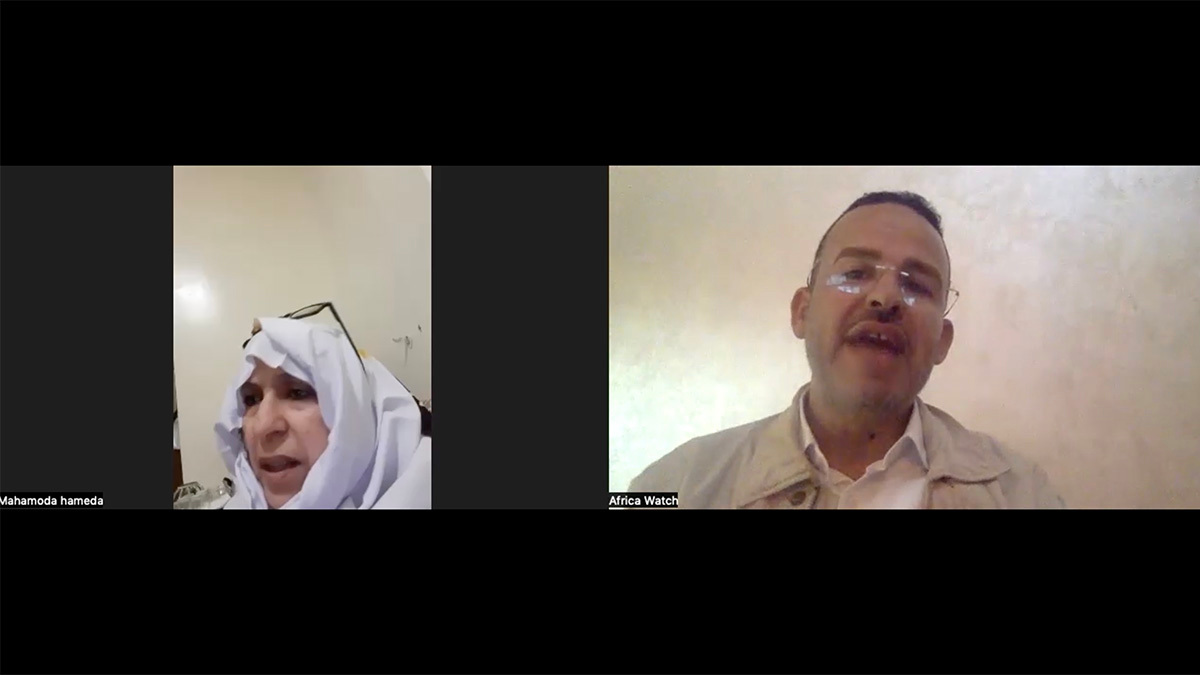
Mahmouda Ahmayda Said responded bitterly to the journalist's questions, as if she was going over the memories of her entry into the camps in the seventies of the last century and the dreams of many of her generation to return to their land in a week at the latest, as portrayed to them by the immortal Polisario leadership, as well as the ideological burden of the people in Tindouf with feelings of hatred and malice towards anyone who does not comply with the organisation.
She added, regretting the loss of many years of her life, that she was abducted and detained five times for the same reason, and under the responsibility of the same people who exchange roles to protect their personal interests, those of their families and those of their subordinates.
The released victim explained that there is no hope of accessing Algerian national redress mechanisms to protect persons detained in the Tindouf camps located on Algerian national territory, because the Algerians do not consider the affairs of the camps to be their responsibilities, and their affairs are left to the Polisario leadership, as it is the authority authorised to manage security matters, judicial and daily life affairs of the residents of the Tindouf camps, without a minimum of follow-up by the host country, nor follow-up and investigation by the UN High Commissioner for Refugees, except to the extent that it will shine Algeria's image as an incubator of refugee camps that require more financial and logistical support, in the context of a struggle between Algeria and Morocco for leadership at the regional and international level.
Mahmouda Ahmayda Said indicated that her voice would not have reached the world, had it not been for the initiative of the Coalition of Sahrawi NGOs and accompanied her in her ordeal with others, unlike the Human Rights Committee in the camps, which does nothing more than accompany the Polisario secretary and ask him to renew his mandate because of the continuation of serious violations against the Saharawis in the camps and their abuses, even if they are related to the protests against the injustice and plunder they are subjected to, in the eyes of this frozen committee.
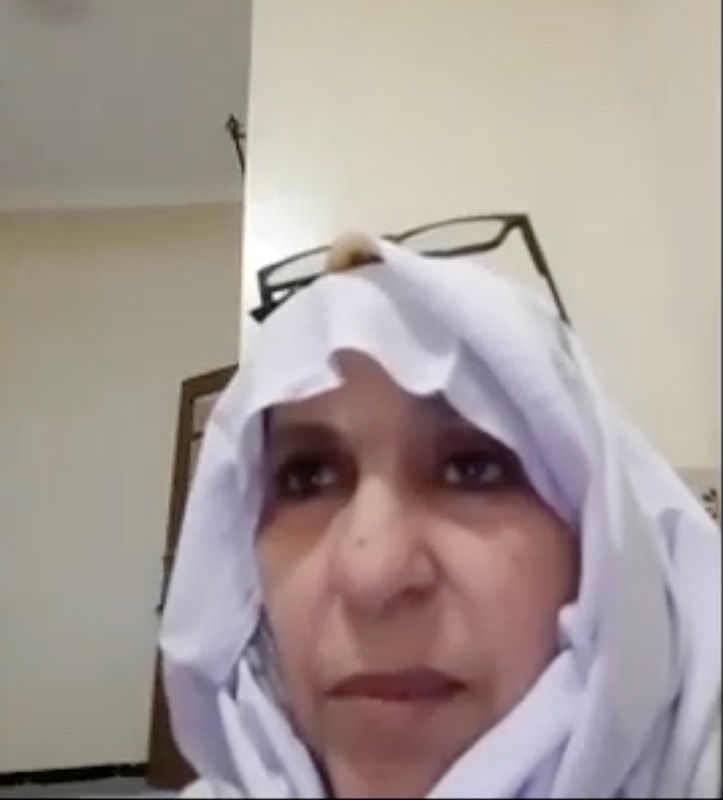
Mahmouda has uncovered the ugly face of the Polisario, which hides a big lie about the idea of independence that it planted in the minds of thousands of people, without being courageous enough to be honest with the Saharawis about the mirage of a dream that will only come true in its rush to accumulate money and profits, qualifying the children of the leaders and guaranteeing them conditions for a comfortable life abroad, impoverishing the naturally poor and keeping them in the camps to ensure their dependence, their silence, their suffering and being subjected to extremely complex circumstances.
Added to this is the brutality of a leadership that sees in them nothing more than statistical numbers to get more aid and an attempt to vent the ally's failure to deal with its intractable internal problems by fighting imaginary Don Quixote battles, to the imaginary bravery and vision of a regime that sees itself as a saviour of the peoples of the world from evil, but which sees the enemy only in the tolerance and greatness of its northern neighbour, and which began to imagine that Morocco's achievements were the prelude to aggressive actions against its objectives, its national security, while the whole world saw that the matter was related to a struggle of Don Quixote Al-Mouradiya with the windmills of Morocco's southern provinces.
She imagined herself sticking her lance into them by embracing the Polisario organisation, but got stuck, through the loss of the ability to respond to the aspirations and needs of the Algerian people in terms of progress, quality education, health, education for citizenship, human rights and freedoms, to oppose Morocco's interests and try to tarnish its reputation at regional and international level, and to practice political hypocrisy towards the Moroccans by not interfering in the Sahara issue, while one can almost be sure that any movement of a Sahrawi in the camps is accompanied by close surveillance by an Algerian officer, and the camps are not linked to any coordination with the host country's foreign and interior ministries, but are considered an exclusive annex of the Military Coordination Office in Tindouf, attached to the Third Military District of Béchar.
At the conclusion of the interview, Mahmouda Ahmayda Said expressed her deep discontent at the suspicious silence of the components of the Saharawi civil society in the face of the commission of serious violations against the Saharawis in the camps, the stronger the Polisario leadership would become and the more it would extend its repression to the defenceless civilians who were only seeking a dignified livelihood to emerge from a long-standing struggle to return to their land and live in peace.

